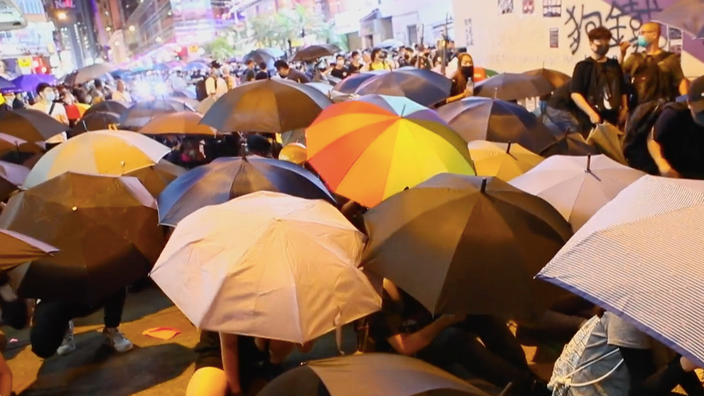The story is told in
The Guardian
.
Anders Hammer, Norwegian journalist and director, moved to Hong Kong in 2019 to film pro-democracy protesters fighting against local authorities working for the Beijing regime.
A year later, the 40-year-old was becoming a full-fledged protagonist of his story, when the result of his work, a low-budget documentary dubbed
Do Not Split
, was shortlisted for the Oscars.
Read also: China bans its national channels from broadcasting the Oscars
The Chinese government's reprisals were immediate.
Beijing has banned the country's media from broadcasting the ceremony.
Especially since Chloé Zhao, nominated in the categories "best director" and "best film" for
Nomadland
, is also in the sights of the authorities after comments made in an American magazine in 2013, in which she seemed to criticize her country of origin.
To read also: Chloé Zhao: the director of "Nomadland" considered a "traitor" in China
The film of an angry youth
This censorship had the effect of bringing Anders Hammer's film to the forefront of the international film scene.
"We're in a category, documentary shorts, which isn't normally the one that gets the most attention
[in Oscar coverage],
"
the director told The
Guardian
, adding that
"he it's ironic that Beijing is currently promoting our documentary ”
.
The half-hour film, available in open access on the Vimeo platform, presents images of the 2019 demonstrations, interspersed with interventions by participants and pro-democracy students.
It is especially centered on the story of Joey Siu, a student, who chose to put aside her teaching projects in order to get involved in the fight of her fellow citizens.
She is one of the few to speak publicly;
the other young people interviewed, on the front line, chose to remain anonymous for fear of reprisals.
Read also: The keys to understanding Hong Kong strangled by the Chinese tourniquet
Millions of people marched through the streets of Hong Kong during the summer of 2019, originally opposed to an extradition law that would have allowed the city to extradite its detainees to China in order to judge according to the Beijing judicial system.
Finally, the peaceful protests turned into head-on confrontations with the police in order to obtain the cancellation of the surrender of the territory, decided in 1997 and which will be recorded in 2047. At the end of 2019, the students had even besieged their homes. university campus, armed with molotov cocktails in the face of bullets and tear gas from the police.
Killed in the Egg
The pandemic put an end to the protests, and soon after, the Chinese government passed a security law for Hong Kong, effectively ending the city's limited autonomy. The main opponents have for the most part been imprisoned, others have demanded. Under the new legislation, protest slogans and songs have been banned.
“It was the biggest revolt against Beijing and its political leaders in a very long time,”
comments Hammer.
"
[The Chinese leadership] is
very afraid that this may somehow spread and similar actions will be taken in mainland China."
The name of the documentary, taken from a protest slogan, underscores the need for unity in the face of pressure from Beijing. This Oscar nomination helps breathe new life into this crushed revolt, Or at least remember.

